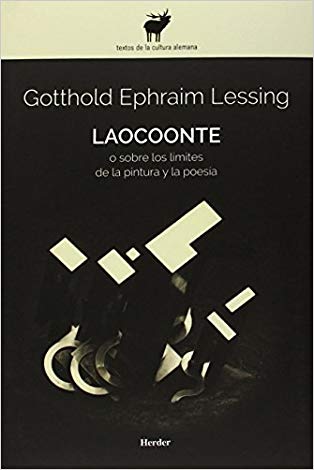Ir al contenido
Resultados de la búsqueda para: Gotthold Ephraim Lessing
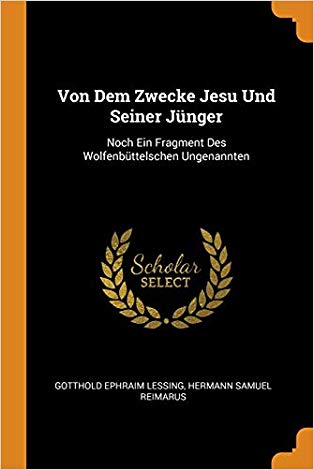 This work has been selected by scholars as being culturally important and is part of the knowledge base of civilization as we know it.This work is in the public domain in the United States of America, and possibly other nations. Within the United States, you may freely copy and distribute this work, as no entity (individual or corporate) has a copyright on the body of the work.Scholars believe, and we concur, that this work is important enough to be preserved, reproduced, and made generally available to the public. To ensure a quality reading experience, this work has been proofread and republished using a format that seamlessly blends the original graphical elements with text in an easy-to-read typeface.We appreciate your support of the preservation process, and thank you for being an important part of keeping this knowledge alive and relevant.
This work has been selected by scholars as being culturally important and is part of the knowledge base of civilization as we know it.This work is in the public domain in the United States of America, and possibly other nations. Within the United States, you may freely copy and distribute this work, as no entity (individual or corporate) has a copyright on the body of the work.Scholars believe, and we concur, that this work is important enough to be preserved, reproduced, and made generally available to the public. To ensure a quality reading experience, this work has been proofread and republished using a format that seamlessly blends the original graphical elements with text in an easy-to-read typeface.We appreciate your support of the preservation process, and thank you for being an important part of keeping this knowledge alive and relevant.




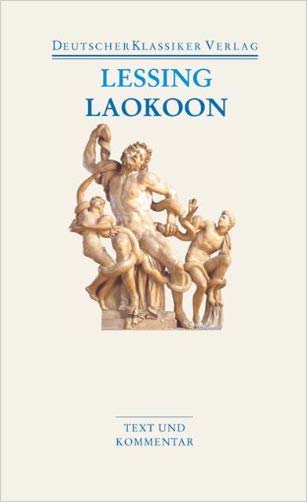

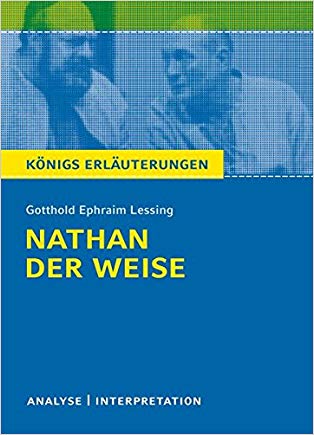

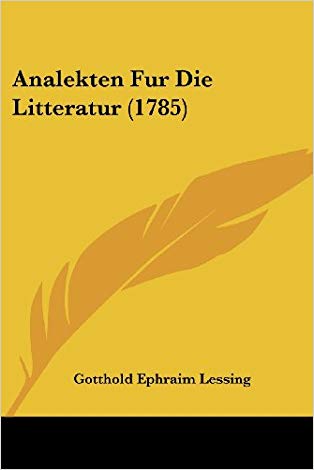

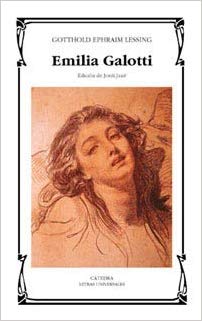 Lessing relata el drama de la joven burguesa Emilia Galotti, a la que el príncipe de Guastalla, típico representante de la desmesurada arbitrariedad del tirano y del libertinaje erótico, intenta atrapar en sus redes. Para ello, no dudará incluso en asesinar al novio de la joven, Appiani. Emilia, a su vez, se rendirá ante los encantos amorosos del príncipe y, escandalizada por su comportamiento, le pedirá a su padre un puñal para suicidarse. Finalmente será su padre quien la ejecute, pues no puede permitir que su hija se convierta en una suicida.
Lessing relata el drama de la joven burguesa Emilia Galotti, a la que el príncipe de Guastalla, típico representante de la desmesurada arbitrariedad del tirano y del libertinaje erótico, intenta atrapar en sus redes. Para ello, no dudará incluso en asesinar al novio de la joven, Appiani. Emilia, a su vez, se rendirá ante los encantos amorosos del príncipe y, escandalizada por su comportamiento, le pedirá a su padre un puñal para suicidarse. Finalmente será su padre quien la ejecute, pues no puede permitir que su hija se convierta en una suicida.
 This work has been selected by scholars as being culturally important and is part of the knowledge base of civilization as we know it.This work is in the public domain in the United States of America, and possibly other nations. Within the United States, you may freely copy and distribute this work, as no entity (individual or corporate) has a copyright on the body of the work.Scholars believe, and we concur, that this work is important enough to be preserved, reproduced, and made generally available to the public. To ensure a quality reading experience, this work has been proofread and republished using a format that seamlessly blends the original graphical elements with text in an easy-to-read typeface.We appreciate your support of the preservation process, and thank you for being an important part of keeping this knowledge alive and relevant.
This work has been selected by scholars as being culturally important and is part of the knowledge base of civilization as we know it.This work is in the public domain in the United States of America, and possibly other nations. Within the United States, you may freely copy and distribute this work, as no entity (individual or corporate) has a copyright on the body of the work.Scholars believe, and we concur, that this work is important enough to be preserved, reproduced, and made generally available to the public. To ensure a quality reading experience, this work has been proofread and republished using a format that seamlessly blends the original graphical elements with text in an easy-to-read typeface.We appreciate your support of the preservation process, and thank you for being an important part of keeping this knowledge alive and relevant.




 Lessing relata el drama de la joven burguesa Emilia Galotti, a la que el príncipe de Guastalla, típico representante de la desmesurada arbitrariedad del tirano y del libertinaje erótico, intenta atrapar en sus redes. Para ello, no dudará incluso en asesinar al novio de la joven, Appiani. Emilia, a su vez, se rendirá ante los encantos amorosos del príncipe y, escandalizada por su comportamiento, le pedirá a su padre un puñal para suicidarse. Finalmente será su padre quien la ejecute, pues no puede permitir que su hija se convierta en una suicida.
Lessing relata el drama de la joven burguesa Emilia Galotti, a la que el príncipe de Guastalla, típico representante de la desmesurada arbitrariedad del tirano y del libertinaje erótico, intenta atrapar en sus redes. Para ello, no dudará incluso en asesinar al novio de la joven, Appiani. Emilia, a su vez, se rendirá ante los encantos amorosos del príncipe y, escandalizada por su comportamiento, le pedirá a su padre un puñal para suicidarse. Finalmente será su padre quien la ejecute, pues no puede permitir que su hija se convierta en una suicida.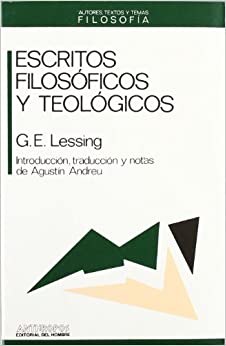
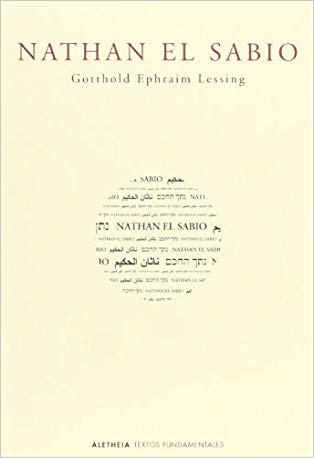
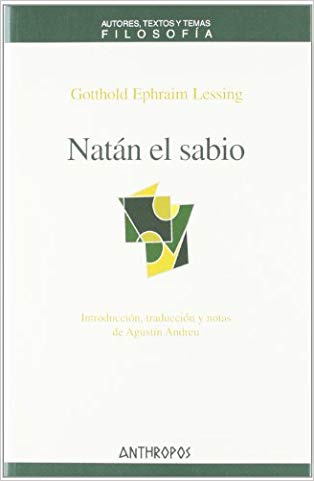 El poema dramático Natán el sabio, es en cierto modo el testamento de Lessing y, a su vez, muestra una gran actualidad porque se cumplen sus previsiones, naturalmente desdeñadas en su hora, del reiterado encuentro feroz de las religiones abrahamíticas (islamismo, judaísmo, cristianismo) entre sí y con las grandes religiones asiáticas. Y porque la crítica de las religiones del libro incluye la de los presupuestos antropológicos de una modernidad (Hobbes, Descartes, Locke) incapaz de presagiar y moverse hacia un horizonte donde el hombre se atreva a ser más que hombre.
El poema dramático Natán el sabio, es en cierto modo el testamento de Lessing y, a su vez, muestra una gran actualidad porque se cumplen sus previsiones, naturalmente desdeñadas en su hora, del reiterado encuentro feroz de las religiones abrahamíticas (islamismo, judaísmo, cristianismo) entre sí y con las grandes religiones asiáticas. Y porque la crítica de las religiones del libro incluye la de los presupuestos antropológicos de una modernidad (Hobbes, Descartes, Locke) incapaz de presagiar y moverse hacia un horizonte donde el hombre se atreva a ser más que hombre.